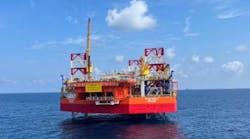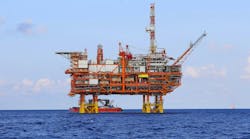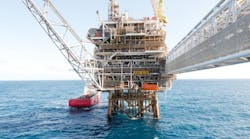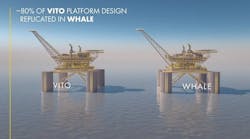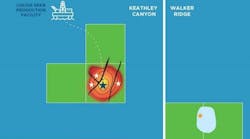Offshore staff
LONDON – Westwood Energy expects the industry in Western Europe to spend around $102 billion on offshore decommissioning between now and 2040.
However, as analyst Ian McDonald points out, decommissioning presents a very different dynamic to field development, and the asset or field owners’ strategy must be to minimize the costs and liability involved in removing infrastructure safely and in compliance with regulations.
And although the supply chain stands to benefit from revenue streams and is preparing accordingly, in a volatile commodity price environment it also needs to offer efficient, cost effective solutions to the operators, while somehow sustaining reasonable profitability.
Offshore Western Europe, Westwood estimates there are currently around 5,600 surface wells and a further 2,600 subsea wells to be P&A’d: traditional methods typically involve use of a cement plug delivered from a dedicated rig.
But as P&A activity quickens, there are openings for innovation such as alternatives to cement or chemical barriers that isolate the reservoir itself as opposed to at the wellbore.
If these technologies can be delivered without the use of a dedicated rig, this could bring substantial time and cost savings to the asset owners.
Westwood estimates around 4.3 MM metric tons (4.74 MM tons) of infrastructure will need to be removed through 2040 in Western Europe, which will then have to be taken ashore for processing. It may not be realistic, McDonald said, to remove all via reverse installation techniques and heavy or single-lift vessels: there could be demand, therefore, for innovative approaches to offshore dismantlement delivering increasing amounts of small or mid-size pieces toonshore facilities.
Some local ports in Scotland and England are developing facilities to break down and recycle (where possible) offshore tonnage to compete better with ports in other jurisdictions, particularly in Norway, for North Sea decommissioning contracts.
In Scotland,Forth Ports and Lerwick Port Authority have formed joint ventures with Tier 1 contractors to deliver such strategies and Westwood expects further Tier 1’s to realign themselves as decommissioning specialists working with existing facilities across the UK, supported by investments in the ports such as deeper water quays, strengthened quay sides and hazardous waste management facilities.
However, if commodity prices remain on the low side, banks, investors, accountants and the legal community also need to understand how best to advise their clients through the challenges decommissioning presents, McDonald said.
01/16/2018

